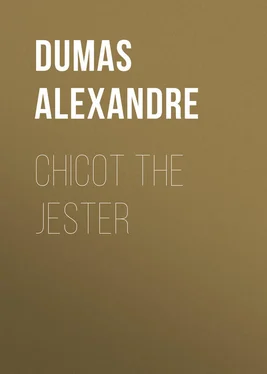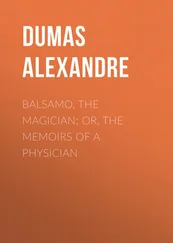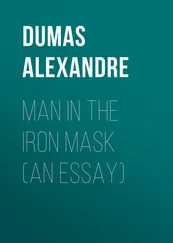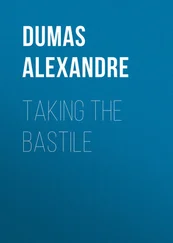Alexandre Dumas - Chicot the Jester
Здесь есть возможность читать онлайн «Alexandre Dumas - Chicot the Jester» — ознакомительный отрывок электронной книги совершенно бесплатно, а после прочтения отрывка купить полную версию. В некоторых случаях можно слушать аудио, скачать через торрент в формате fb2 и присутствует краткое содержание. Жанр: literature_19, foreign_antique, foreign_prose, на английском языке. Описание произведения, (предисловие) а так же отзывы посетителей доступны на портале библиотеки ЛибКат.
- Название:Chicot the Jester
- Автор:
- Жанр:
- Год:неизвестен
- ISBN:нет данных
- Рейтинг книги:5 / 5. Голосов: 1
-
Избранное:Добавить в избранное
- Отзывы:
-
Ваша оценка:
- 100
- 1
- 2
- 3
- 4
- 5
Chicot the Jester: краткое содержание, описание и аннотация
Предлагаем к чтению аннотацию, описание, краткое содержание или предисловие (зависит от того, что написал сам автор книги «Chicot the Jester»). Если вы не нашли необходимую информацию о книге — напишите в комментариях, мы постараемся отыскать её.
Chicot the Jester — читать онлайн ознакомительный отрывок
Ниже представлен текст книги, разбитый по страницам. Система сохранения места последней прочитанной страницы, позволяет с удобством читать онлайн бесплатно книгу «Chicot the Jester», без необходимости каждый раз заново искать на чём Вы остановились. Поставьте закладку, и сможете в любой момент перейти на страницу, на которой закончили чтение.
Интервал:
Закладка:
“Yes, it was at that moment I recovered my senses and saw your portrait, and thought I saw you enter,” said Bussy.
“I did so; my anxiety was stronger than my prudence. The doctor examined your wound and answered for your life.”
“All that remained in my mind,” said Bussy, “like a dream, and yet something told me,” added he, laying his hand upon his heart, “that it was real.”
“When the surgeon had dressed your wound, he drew from his pocket a little bottle containing a red liquor, of which he put some drops on your lips. He told me it was to counteract the fever and produce sleep, and said that the only thing then was to keep you quiet. Gertrude then bandaged his eyes again, and took him back to the Rue Beautrellis, but she fancied he counted the steps.”
“He did so, madame.”
“This supposition frightened us. We feared he would betray us, and we wished to get rid of every trace of the hospitality we had shown you. I gathered up my courage; it was two o’clock, and the streets were deserted; Gertrude was strong, and I aided her, and between us we carried you to the Temple. Luckily we met no one, but when we returned, I fainted with emotion.”
“Oh! madame!” cried Bussy, “how can I ever repay you for what you have done for me?”
There was a moment’s silence, and they heard the clock of St. Catherine’s church strike. “Two o’clock,” cried Diana, “and you here!”
“Oh! madame, do not send me away without telling me all. Suppose that God had given you a brother, and tell this brother what he can do for his sister.”
“Alas! nothing now; it is too late.”
“What happened the next day?” said Bussy; “what did you do on that day when I thought constantly of you, without feeling sure if you were not a vision of my delirium?”
“During that day, Gertrude went out, and met Aurilly. He was more pressing than ever. He said nothing of the night before, but asked for an interview for his master. Gertrude appeared to consent, but she asked until the Wednesday – that is to-day – to decide. Aurilly promised that his master would wait until then. That evening, M. de Monsoreau returned. We told him all, except about you.
“‘Yes,’ said he, ‘I heard of all this. Then he has a key.’ ‘Can we not change the lock?’ ‘He will get another key.’ ‘Put on bolts? ‘He will come with ten men and force the door. ‘But the event which was to give you full power over him?’ ‘Is postponed indefinitely.’ I stood in despair. ‘Monsieur,’ said I, ‘the duke has promised to wait till Wednesday; I ask you to wait till Tuesday.’ ‘Tuesday evening I will be here, madame,’ and without another word he went out. I followed him with my eyes, but instead of going away he stood in the corner by the Hôtel des Tournelles, and seemed determined to watch me all night. Every proof of devotion he gave me was like a knife in my heart. The two days passed rapidly, but what I suffered it is impossible to describe. When Tuesday evening came, I felt exhausted, and all emotion seemed dead within me.
“Gertrude went to the window. ‘Madame,’ cried she, ‘four men! I see four men! They approach, they open the door – they enter! It is, doubtless, the duke and his followers.’ For an answer, I drew my poniard, and placed it near me on the table. ‘See,’ said I. An instant after, Gertrude returned, ‘It is the count,’ said she. He entered. ‘Gertrude tells me,’ said he, ‘that you took me for the duke, and were ready to kill yourself.’ It was the first time I had ever seen him moved. Gertrude was wrong to tell you,’ said I. ‘You know that I am not alone.’ ‘Gertrude saw four men.’ ‘You know who they are?’ ‘I presume one is a priest, and the others witnesses.’ ‘Then, you are ready to become my wife?’ ‘It was so agreed; only I stipulated that except in an urgent case, I would only marry you in the presence of my father.’ ‘I remember; but do you not think the case urgent?’ ‘Yes, and the priest may marry us, but, until I have seen my father, I will be your wife only in name.’
“The count frowned, and bit his lips. ‘I do not wish to coerce you,’ said he; ‘you are free; but look here.’ I went to the window, and saw a man wrapped in a cloak, who seemed trying to get into the house.”
“Oh! mon dieu!” cried Bussy; “and this was yesterday?”
“Yes, about nine o’clock. Presently, another man, with a lantern, joined him. I thought it was the duke and his followers.
“‘Now,’ said, M de Monsoreau, ‘shall I go or stay?’ I hesitated a moment, in spite of my father’s letter and of my given word, but those two men there – ”
“Oh! unhappy that I am,” cried Bussy, “it was I and Rémy, the young doctor.”
“You!” cried Diana.
“Yes, I; I, who, more and more convinced of the reality of my dream, sought for the house where I had been, and the woman, or rather angel, who had appeared to me. Oh! I am unfortunate. Then,” continued he, after a pause, “you are his wife?”
“Since yesterday.”
There was a fresh silence.
“But,” said Diana at last, “how did you enter this house?”
Bussy silently showed his key.
“A key! where did you get it?”
“Had not Gertrude promised the prince to enter tonight? He had seen M. de Monsoreau here, and also myself, and fearing a snare, sent me to find out.”
“And you accepted this mission?”
“It was my only method of penetrating to you. Will you reproach me for having sought at once the greatest joy and the greatest grief of my life?”
“Yes, for it is better that you should see me no more, and forget me.”
“No, madame; God has brought me to you, to deliver you from the toils in which your enemies have taken you. I vow my life to you. You wish for news of your father?”
“Oh, yes! for, in truth, I know not what has become of him.”
“Well, I charge myself with finding out; only think of him who henceforth will live but for you.”
“But this key?”
“This key I restore to you, for I will receive it only from your hands; but I pledge you my word as a gentleman, that never sister could trust in a brother more devoted and respectful.”
“I trust to the word of the brave Bussy. Here, monsieur,” and she gave back the key.
“Madame, in a fortnight we will know more;” and, saluting Diana with a respect mingled with love and sadness, Bussy took leave. Diana listened to his retreating steps with tears in her eyes.
CHAPTER XVII.
HOW HENRI III. TRAVELED, AND HOW LONG IT TOOK HIM TO GET FROM PARIS TO FONTAINEBLEAU
The sun, which shone four or five hours after the events which we have just recorded had taken place, saw, by his pale light, Henri III. set off for Fontainebleau, where a grand chase was projected. A crowd of gentlemen, mounted on good horses and wrapped in their fur cloaks, then a number of pages, after them lackey, and then Swiss, followed the royal litter. This litter, drawn by eight mules richly caparisoned, was a large machine, about fifteen feet long and eight wide, on four wheels, furnished inside with cushions and curtains of silk brocade. In difficult places they substituted for the mules an indefinite number of oxen.
This machine contained Henri III., his doctor, and his chaplain, Chicot, four of the king’s favorites, a pair of large dogs, and a basket of little ones, which the king held on his knees, and which was suspended from his neck by a golden chain. From the roof hung a gilded cage containing turtle doves, quite white, with a black ring round their necks. Sometimes the collection was completed by the presence of two or three apes. Thus this litter was commonly termed the Noah’s Ark.
Конец ознакомительного фрагмента.
Интервал:
Закладка:
Похожие книги на «Chicot the Jester»
Представляем Вашему вниманию похожие книги на «Chicot the Jester» списком для выбора. Мы отобрали схожую по названию и смыслу литературу в надежде предоставить читателям больше вариантов отыскать новые, интересные, ещё непрочитанные произведения.
Обсуждение, отзывы о книге «Chicot the Jester» и просто собственные мнения читателей. Оставьте ваши комментарии, напишите, что Вы думаете о произведении, его смысле или главных героях. Укажите что конкретно понравилось, а что нет, и почему Вы так считаете.












